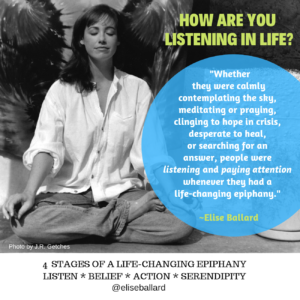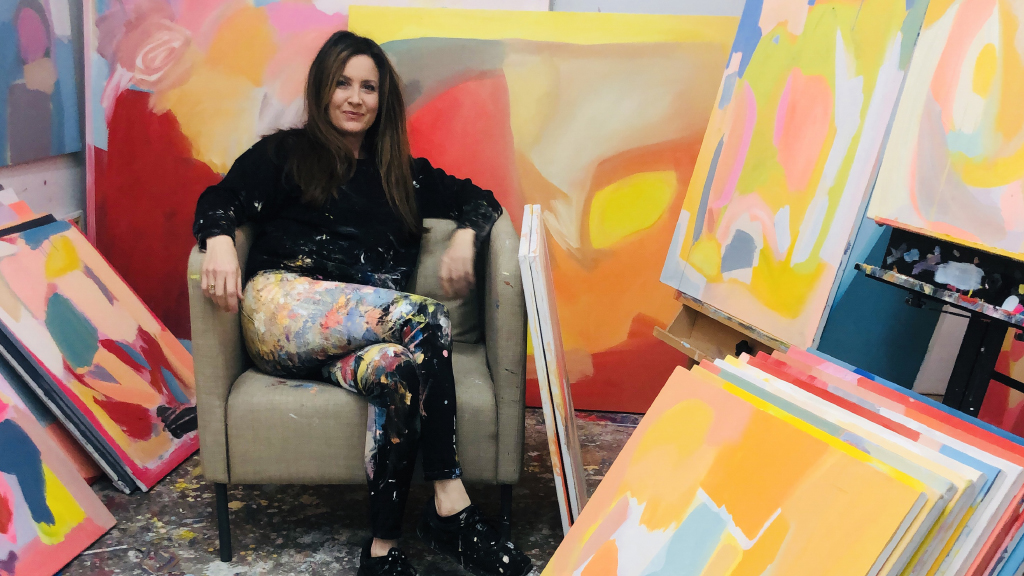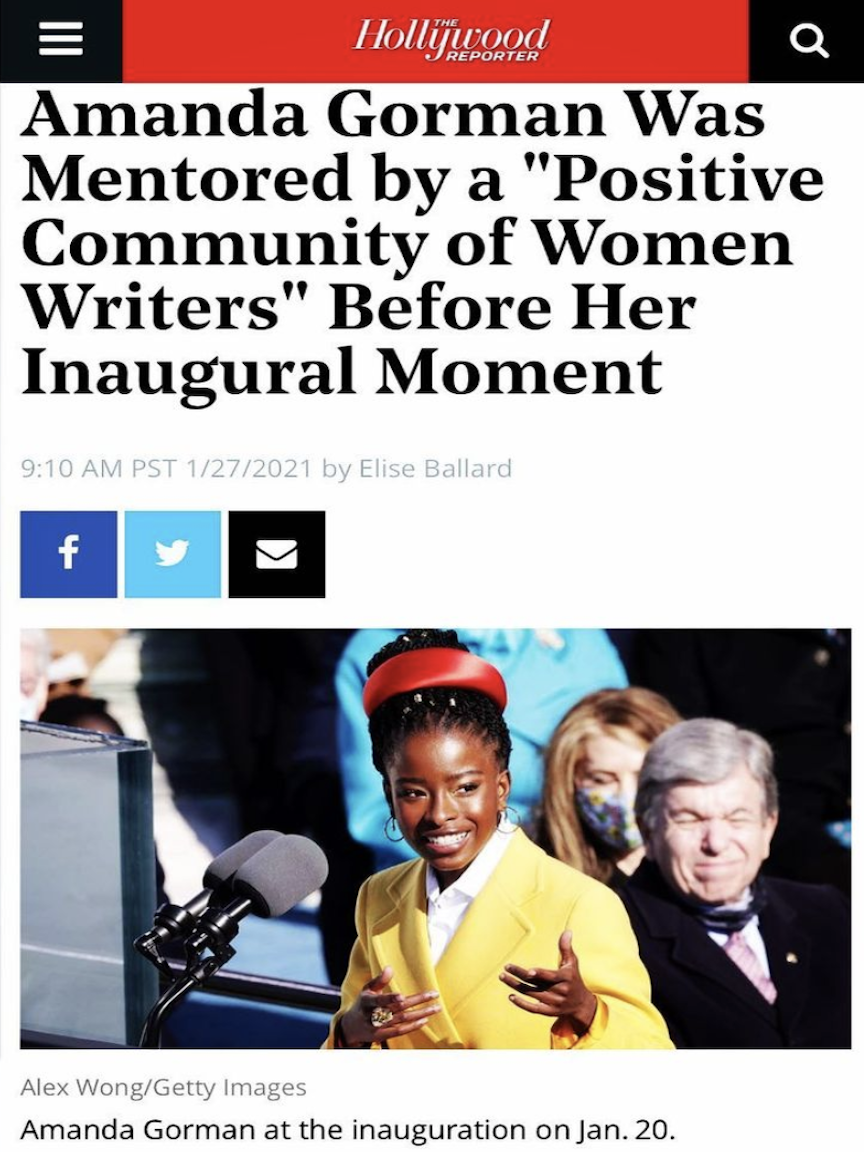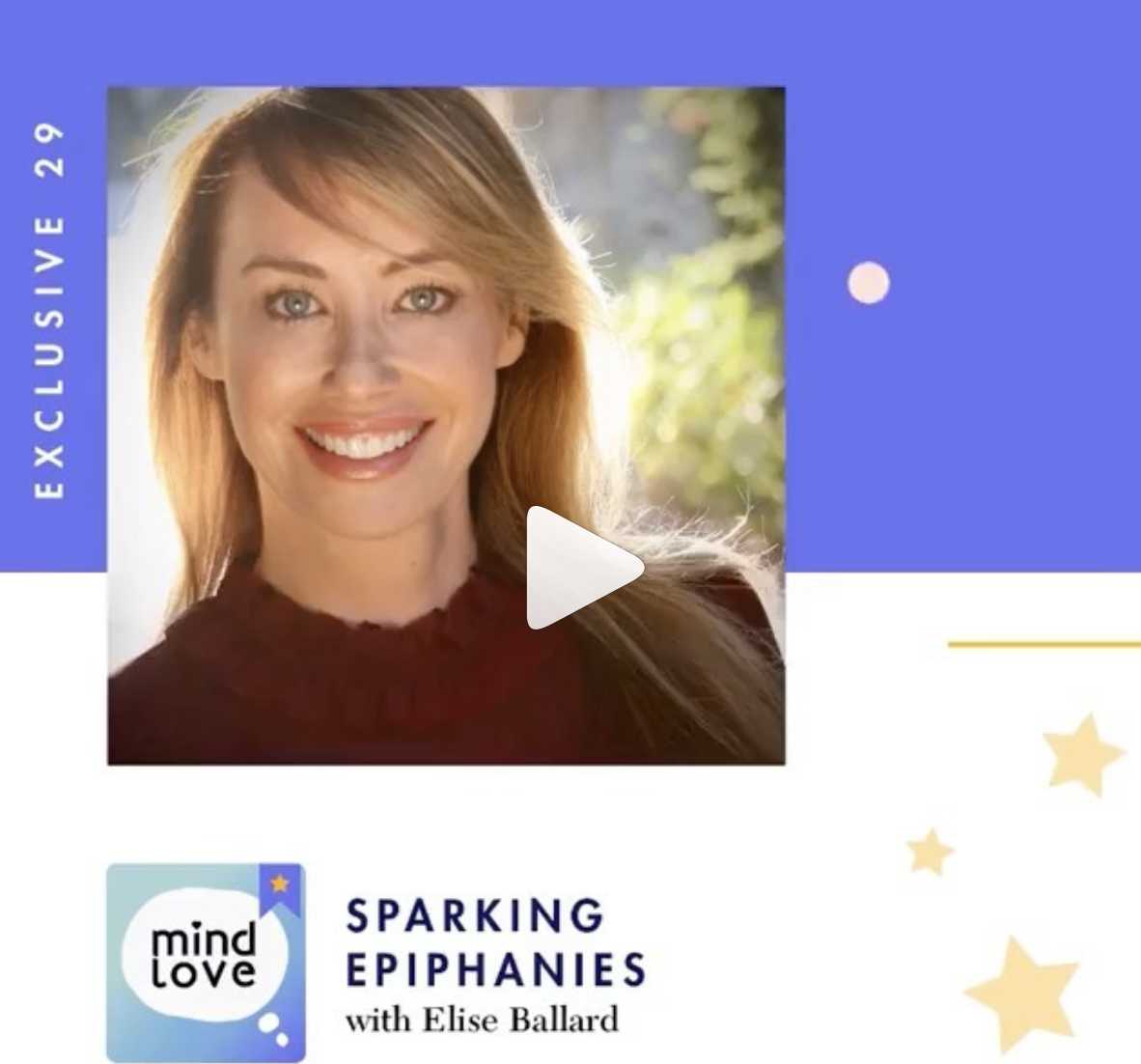
I don’t know about you, but I’m a way-less-than-consistent meditator. (This photo was taken of me in New York many moons ago [hello, #ThrowBackThursday] on a rooftop after one of my first acting classes – totally staged.)
Science says that meditation has uber-positive effects on our brains, minds and bodies. Enhanced immune function, increased positive emotions, overall good health and anti-aging factors are some of the proven side-effects of regular meditation. Tim Ferriss (host of the world-famous podcast–one of my all-time favs) reports that 80% of the world-class performers he interviews meditate. He started meditating because all these people at the top of their games consistently reported they practice meditation of some kind.
Lately, I’ve been making it a goal to meditate at least 7 minutes daily after about the 100thperson told me I should (besides all the studies and literature about it). Plus, I know that epiphanies have everything to do with LISTENING and meditation is a form of the kind of “listening” I’m talking about.
Through my hundreds of interviews with people over the years, I noticed a pattern in every life-changing epiphany. They all have the same four stages (found in the Introduction of Epiphany on pp. 7-8) and LISTENING is the first one.
1.) LISTENING: to pay attention to; hear; be attentive; concentrate; take notice of and act on what someone says; respond to advice or a request; give consideration.
Whether they were calmly contemplating the sky, meditating or praying, clinging to hope in a crisis, desperate to heal, or searching for an answer, people were listening and paying attention to signs and what was going on around them. I say “listening” because many of the epiphanies, especially the more miraculous ones, almost all had to do with hearing a voice, either an inner voice or one from a Higher Power. ~Epiphany, p. 7
Though meditation is a great way to GET STILL, GET PRESENT and LISTEN to your inner voice and the world around you (and now there are also many great apps that can help you such as HeadSpace, Insight Timer, and Calm), there are also alternative methods to get present.
One of the main ways I listen to my inner voice is through JOURNALING. Just in a regular ol’ composition notebook from the school supply section of any drug or office supply store. I do the regular 3 morning pages that Julia Cameron recommends in The Artists Way. Through journaling, ideas like the Epiphany Project, screenplays, major relationship realizations, therapeutic and emotional breakthroughs, investment ideas, and to-do lists, have been born and come to fruition.
That’s why I’m creating the Epiphany Journal to use as a companion to Epiphany or to use on its own, to help the epiphany-sparking process along. Hopefully I’ll have it done just in time for the holidays…so stay tuned…
These are the many other ways to listen in life so that you can prepare or be open to epiphanies—I would say any of these activities practiced with mindfulness is a great practice:
Prayer; meditative walking; exercise; swimming; washing dishes; bathing; being in nature and listening to the sounds around you; basic Mindfulness in everything you do; really slowing down and focusing intensely on your five senses to get present (I learned how to focus through my sense via sense memory acting exercises back in the day when I did things like take photos of me fake-meditating on rooftops): ie: truly feeling your feet on the ground, touching your leg – how it feels on your fingertips and skin, focusing on tasting your food and drink, focused listening to people, etc.
Meditating, journaling, practicing MINDFULNESS—anything to get our minds quiet so we can truly, intensely listen, gets us present. And BEING PRESENT is what I mean by LISTENING–being in a state to have an epiphany.









